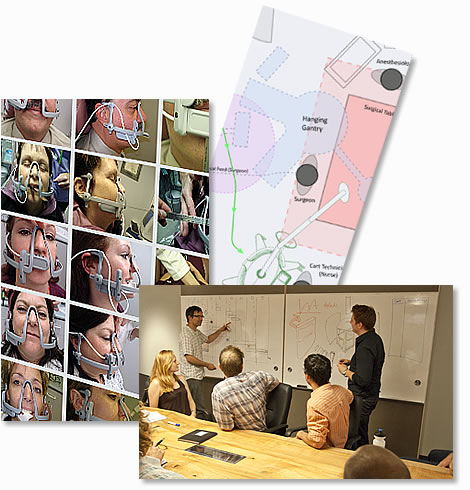
Why Scientists and Inventors Need Product Developers
In my travels I frequently come across an interesting group of people, who, regardless of location and considerable education, share a common misunderstanding of product developers and how successful products are developed.
These individuals reside in newly formed companies that have spun out of university and/or hospital settings. Companies composed of very smart scientists/doctors/academics (who are often the founders of the new enterprise) who’ve discovered a new way to solve a perplexing problem (often a real breakthrough) and think that because they’ve ‘cracked the tough nut’ they’re almost ready to go to market with their invention – except for a couple of ‘tweaks’ by an engineer (not product developers).
I’m always amazed at how wonderfully smart these people are. How they see things that others don’t. How they discover unique ways to solve problems that have plagued their peers for years. How they can take an idea and turn it into a ‘proof of principle’ prototype (POP) that demonstrates the validity of their hypothesis. The world needs more of these people.
That said, considerable intellect and real scientific prowess sometimes lead to an overestimation of one’s abilities, especially in areas that one may not be as familiar with. What seems to form unnoticed in these type of situations/businesses, is a blind spot in knowledge and understanding. A ‘hard to detect’ gap in perception that can take a brilliant beginning… and turn it into a disappointing end.
What’s forgotten in the flurry of excitement and the desire to quickly commercialize a POP prototype (as opposed to a ‘proof of concept’ prototype) is that, no matter how great an idea is, it will not be successful without the involvement of experienced product developers – Industrial Designers, Engineers of various disciplines, Manufacturing, Quality and Regulatory experts all working together in harmony under the oversight of an experienced Program Manager.
A well thought out, proven product development process and an experienced PM and product developers are fundamental to the successful development of any complex product. Try to skip or short circuit this effort, underestimate their value to the overall program and you will repeatedly stumble and will most likely lose time, credibility and considerable investment in the end.
Below is a list of wrong assumptions that scientists, academics and inventors frequently make:
- Product development is often thought of as the ‘easy work’ by inventors of exciting new technologies.
- Product development is only implementation and therefore it will take little time to perform.
- Now that I’ve developed my ‘proof of concept’ model (mistaken for what it really is, a ‘Proof of Principle’ model)…all I need is someone to make a prototype of my product and we’re ready to go.
- My invention is the ‘product’. It embodies all the features and usability that’s required to make it appeal to the end user – they’ll ‘get’ how to use it because it’s self-evident.
- Design and ‘usability’ studies are a waste of time and money. I know my market and it’s others like me.
- Engineers are the poor cousins of scientists. The work they do is only ‘implementation’. Their work does not add significant value to the technology.
- A group of domain experts (specialists – both individuals and companies in a specific field) are all that is needed to develop my product (no product developers).
- Setting up manufacturing is easy, quick and simple work.
- Regulatory work/documentation can be initiated after I figure out my design.
Remember, if you want to take a complex, technical product from an academic setting and evolve it into a usable device that effectively and dependably performs its intended function then you need to come to grips with the fact that you may need to raise additional capital, extend your timeframe for commercialization…and most importantly, partner with an experienced team of product developers.
David Dobson is Vice President, Business Development at StarFish Medical. He has over three decades of product development experience in a variety of corporate and consulting organizations. David has developed medical devices and consumer products, and managed international product design and engineering consultancies.
Images: StarFish Medical